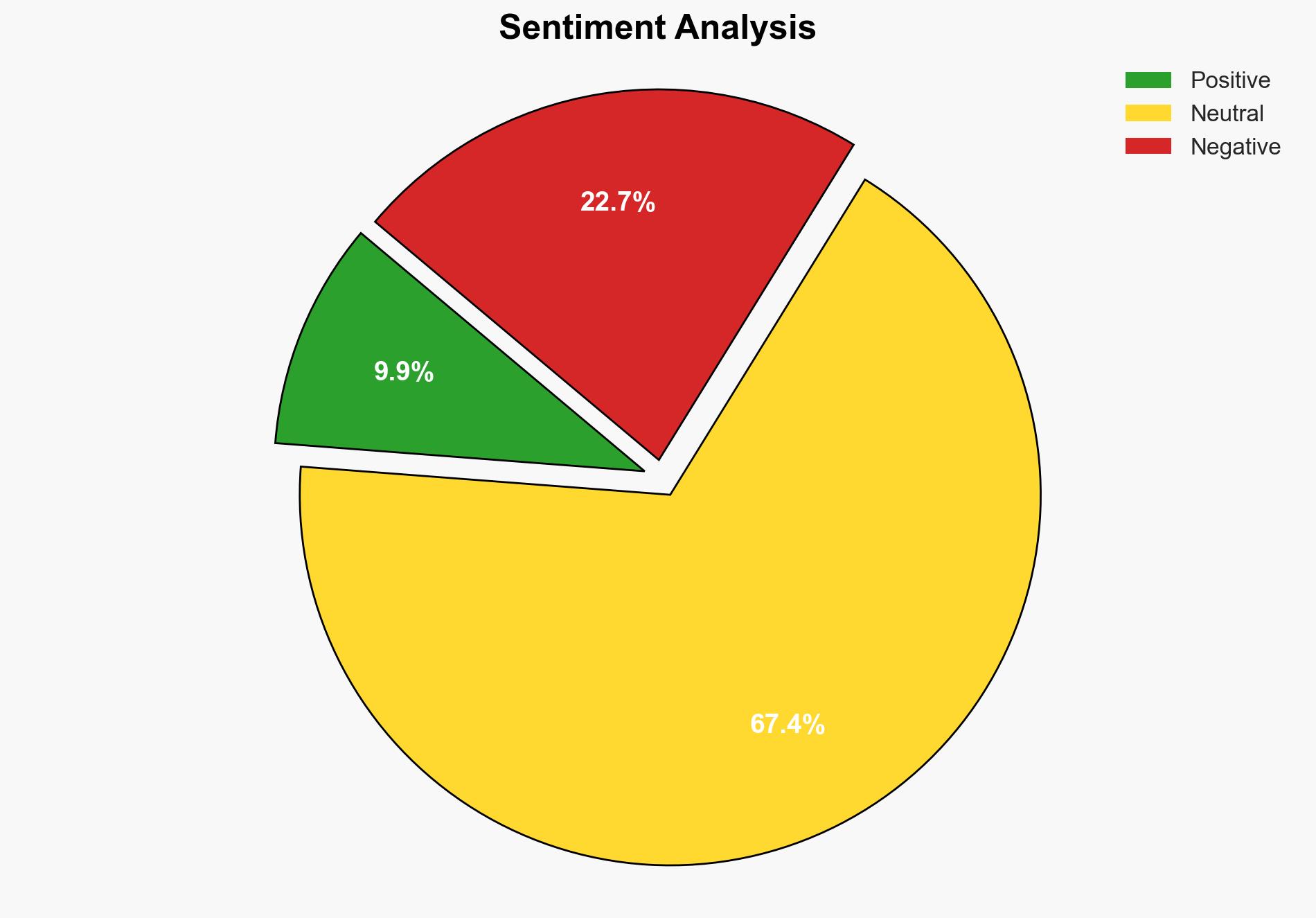Venezuelan immigrants deported to El Salvador despite US court ban – Al Jazeera English
Published on: 2025-03-16
Intelligence Report: Venezuelan immigrants deported to El Salvador despite US court ban – Al Jazeera English
1. BLUF (Bottom Line Up Front)
The deportation of Venezuelan immigrants to El Salvador, despite a US court ban, highlights significant legal and human rights concerns. Allegations suggest that these individuals are members of the Tren de Aragua gang. The deportations occurred following a controversial invocation of wartime legislation by Donald Trump, which was defended by Karoline Leavitt as a necessary action to protect American citizens. The situation raises questions about international law compliance and regional security dynamics.
2. Detailed Analysis
The following structured analytic techniques have been applied for this analysis:
General Analysis
The deportation of Venezuelan immigrants to El Salvador, despite a federal judge’s temporary suspension order, underscores a complex interplay of legal, political, and human rights issues. The invocation of the Alien Enemy Act by Donald Trump, typically reserved for times of major international conflict, is unprecedented in this context. The act’s application suggests a strategic move to address perceived threats from alleged gang members. However, this action has been met with criticism for potentially violating international law and human rights standards.
3. Implications and Strategic Risks
The deportations pose several strategic risks, including:
- Potential diplomatic tensions between the United States and Venezuela, as well as other Latin American countries.
- Increased scrutiny and criticism from human rights organizations, potentially impacting the US’s international reputation.
- Regional instability in El Salvador, which may face challenges in managing the influx of alleged gang members.
- Legal challenges and potential precedents set by the invocation of wartime legislation in non-war contexts.
4. Recommendations and Outlook
Recommendations:
- Review and assess the legal frameworks governing deportations to ensure compliance with international law.
- Engage in diplomatic dialogues with affected countries to mitigate tensions and foster cooperation.
- Enhance monitoring and reporting mechanisms to ensure transparency and accountability in deportation processes.
Outlook:
Best-case scenario: Diplomatic efforts lead to a resolution that respects human rights and legal standards, reducing regional tensions.
Worst-case scenario: Continued deportations exacerbate diplomatic conflicts and human rights criticisms, leading to broader regional instability.
Most likely outcome: Legal and diplomatic challenges persist, with incremental adjustments to policies and practices over time.
5. Key Individuals and Entities
The report mentions significant individuals and organizations:
- Nayib Bukele
- Donald Trump
- Karoline Leavitt
- Marco Rubio
- Pam Bondi
- Tren de Aragua
- American Civil Liberties Union (ACLU)





